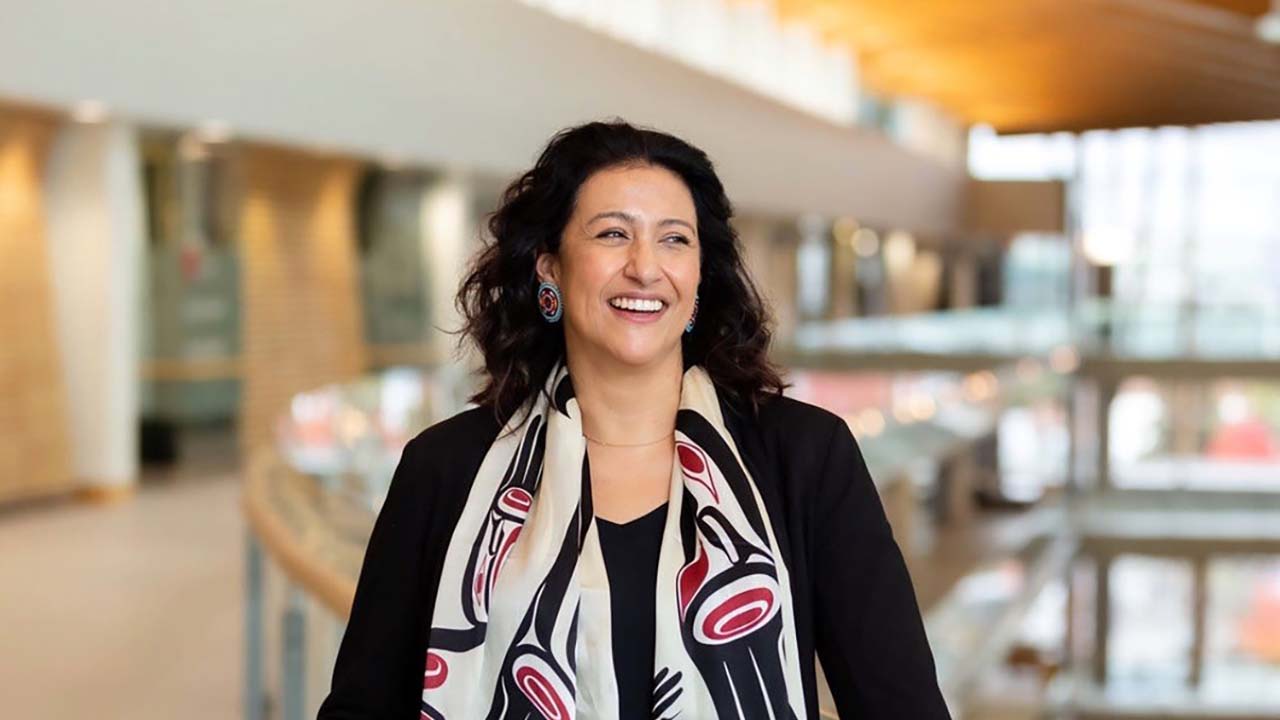
- This event has passed.
“I Want to Speak About it in My Language.” A Case Study of a Group Intervention Conducted in the Ojibway Language
October 12, 2023 @ 5:00 pm - 6:30 pm

In the series:
Emeritus College Series at Green College: Psychological Trauma and Resilience
Coach House, Green College, UBC
A reception follows this event
Working from a place of cultural reclamation and trauma informed practice presents psychotherapists with a beautiful challenge and opportunity for knowledge exchange. Anishinaabe (Ojibway) peoples are regarded as grand medicine people due to their deep healing knowledge, which is embedded in our ancient practices of ceremony, medicine gathering and language.
As a psychotherapy researcher and Anishinaabe, Alanaise Ferguson is interested in accessing cultural concepts of helping and healing embedded in the linguistic structure and embodied communication in personal stories shared in an Anishinaabemowin (Ojibway language) healing intervention. She co-created a method with six fluent Anishinaabemowin speakers to facilitate a healing intervention that they participated in as a group. Arranged in a circle around a kitchen table, two speakers sat across from one another and generated a counselling dyad where one person released her personal story to another who served as the counsellor in the presence of four other witnesses. After 45 minutes of empathic responding in Anishinaabemowin, the four therapeutic witnesses were invited to share their reflections with the group. It was within these interactions that Alanaise was able to articulate the therapeutic power of Anishinaabemowin group counselling and witnessing, and report on the emergence of a culturally agile group intervention. This intervention was video recorded to be viewed later, multiple times, in the presence of an Anishinaabemowin fluent elder who provided cultural oversight during the interpretive stages. This step ensured cultural and linguistic safety for participants and focussed her attention on participants’ embodied communication. Several listening stages preceded the eventual translation into English text. Trustworthiness checks were followed and transcripts returned to the participants. Analysis of the intervention was conducted dialogically in Anishinaabemowin during the reflecting circle portion of the group, and subsequently translated into English.
Several healing concepts emerged in the counselling and circle work interactions and are considered unique features of Anishinaabemowin patterns and embodied cultural communication. Implications for cross-cultural group psychotherapy include: (a) identifying the linguistic limitations, challenges and advantages of counselling in Indigenous languages, (b) expansion of current therapy models to principally include Indigenous language and culture in trauma informed practices.